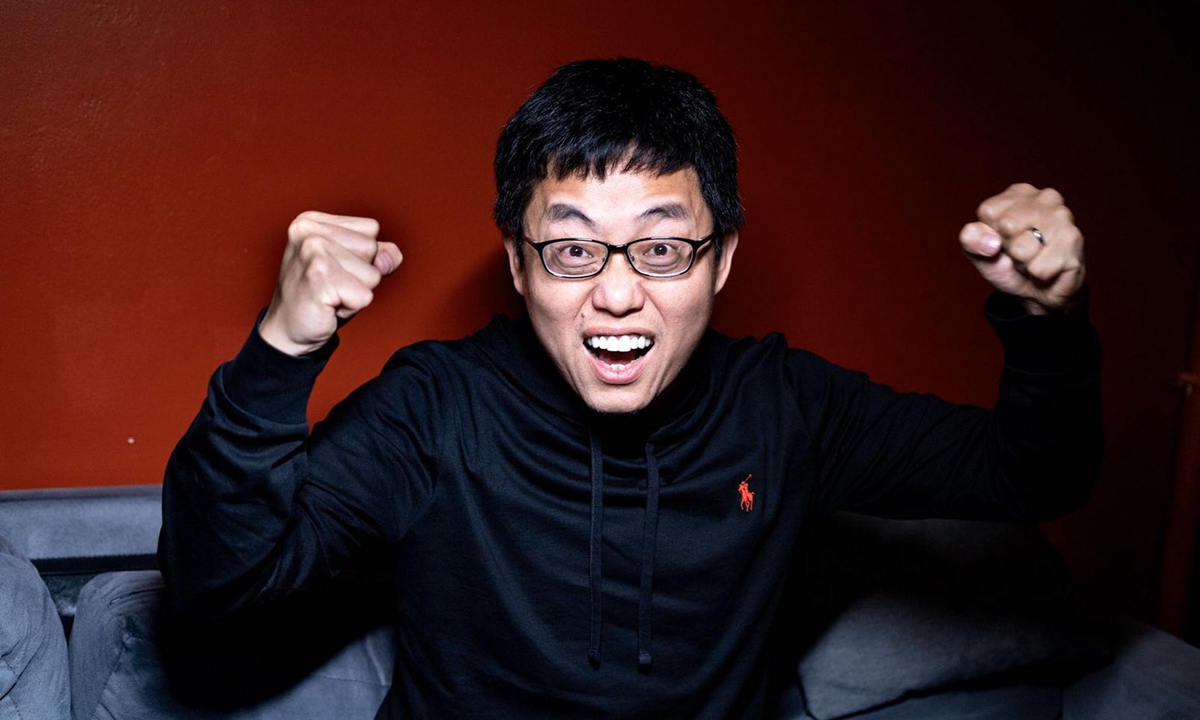So much discrimination toward Asian Americans, so little media attention: satirist Joe Wong
By Sun Haoran Source:Global Times Published: 2020/6/5 18:59:05 Last Updated: 2020/6/5 23:37:56

Photo: Courtesy of Joe Wong
Chinese-American comedian Joe Wong said that Asian Americans in the catering and small business sectors have been impacted by the chaos sparked by the death of George Floyd, and noted that while Asians are fighting against systemic racism, the US society is ignoring their plight.
Born in China, Wong moved to the US to study in 1994. In 2001, Wong relocated to Boston, where he began his career as a comedian. After appearing on major US TV shows, Wong began attracting nationwide attention.
"Many shops run by Asian Americans were smashed or robbed," Wong told the Global Times on Thursday.
"In some places such as Chicago and Los Angeles, the protests are smaller and many restaurant owners either had guns to protect themselves and their properties, or the majority of residents in the local areas are Asian," said Wong.
It has been almost 10 days since African-American George Floyd was killed by a white police officer in Minneapolis. Since then, celebrities including Michael B. Jordan and Rihanna have posted a black square on their social media accounts in support of the Black Lives Matter protests.
Chinese netizens have supported the moves, claiming they are meaningful while also question whether there would be similar protests if an Asian American had been killed by police.
It was also pointed out how similar support did not emerge from US society when Asians encountered hatred and attacks after US authorities made irresponsible remarks referring to COVID-19 as the "China virus."
Truth hurts
Asian Americans, especially Asian men, have always faced discrimination in the US, which is surprising and difficult to understand for many Chinese when they first arrive in the US, Wong said.
"Some Asians born and raised in the US told me they have experienced discrimination," Wong noted. "And the situation has become way worse since Trump's 'Chinese virus' tweet."
"Different from the situation African Americans are facing, a lot of liberal white Americans are not willing to admit there is discrimination against Asians," Wong said.
Wong is an activist for Asian Americans' rights and has been speaking out on behalf of Asians in the US for a long time. On Twitter, Wong has slammed white supremacists and initiated a petition to include the Asian American story in US text books.
Wong noted that racism toward Asian Americans has historical roots dating back to when they were imported to the US as laborers. Chinese labor was integral to the construction of the First Transcontinental Railroad, and many lost their lives due to unsafe, often brutal work conditions.
"Although Chinese laborers made enormous contributions and sacrifice to the construction of the US, many Americans don't even know about it," he said, adding that there had been many discriminatory incidents against the Chinese throughout US history, such as the notorious "The Chinese Exclusion Act," which forbade Chinese immigration while white European settlers were being offered free land.
Wong says he feels a sense of urgency, as "Asian Americans face so much discrimination with little mainstream media attention, and they make up only about 5 percent of the US population, it's a truly dangerous scenario."
Speak up for yourselves
"I have lived in the US for more than 20 years, and the status of Asians has not improved significantly. For example, from my experiences, Asians are more likely to be the victims of company layoffs and face greater difficulties in receiving promotions than other ethnicities," said Wong.
Wong explained that many Asian Americans are modest and rarely go to the streets to protest for their rights and interests. "They don't have a strong organization or media outlets to represent them."
"Asian Americans have a 'shame' culture that they are unwilling to tell others about the bad parts of their lives so they don't lose face," Wong said.
"Asians have to learn how to pocket their pride and tell their stories more often to fight against racism and inequality. Don't count on the mainstream to take care of you. Take the lead in your own fight and only then will others come around and support you," Wong noted. In the meantime, "society also needs to pay closer attention to the plight of Asian Americans."
Posted in: EYE ON WORLD